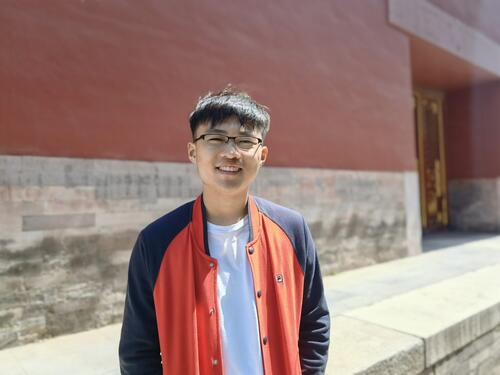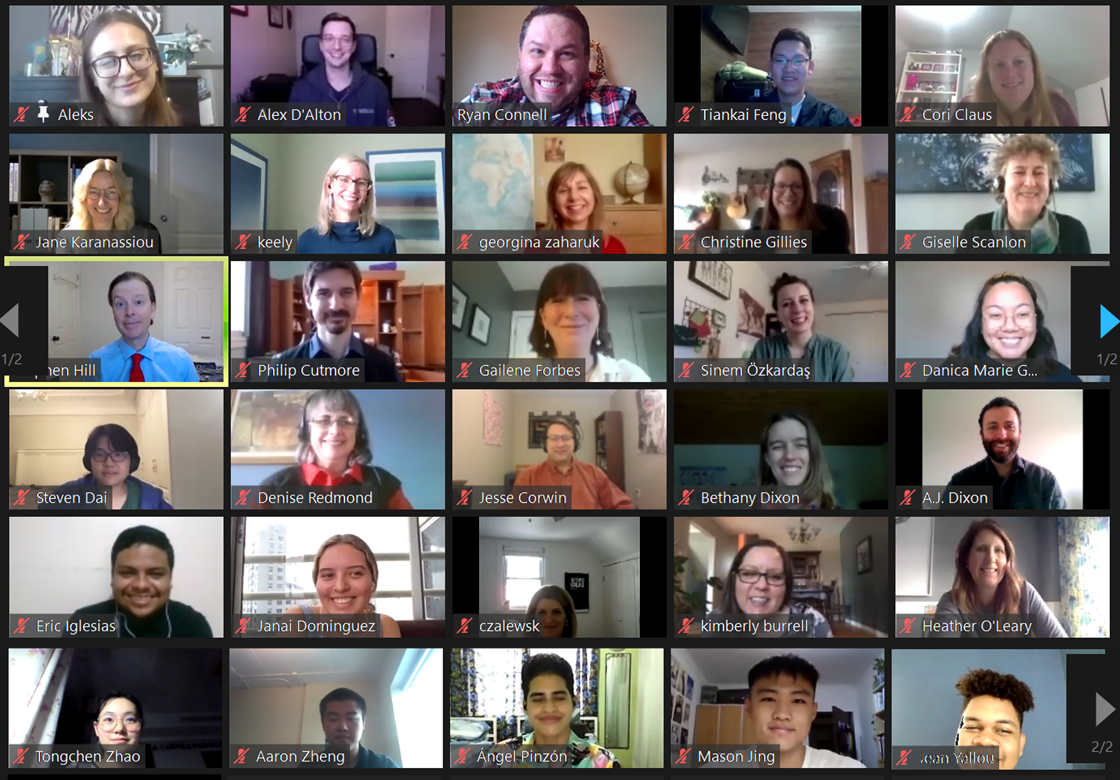
By Laura Juodvirsis, ELI Programs Assistant
Yinqi (Mason) Jing is a Bridge to Academic Success in English (BASE) 2020-2021 alumni from China, who now studies Computer Engineering (ECE) at the University of Waterloo. He graciously agreed to be speak about his experience in the BASE 2020-21 program -- the first time our BASE program had gone fully virtual during the COVID-19 pandemic. Mason is a kind, enthusiastic person who juggles his school life with various hobbies and extra-curricular activities. For instance, in his spare time, he enjoys playing his guitar and singing (but “not for an audience”, he adds).
Frequently, Mason attends Street Dance classes and enjoys swimming at his local public pool. Enjoy our interview to hear what Mason had to say about his experience in BASE.
Q: What was your experience like in the BASE program?
A: “Overall, I think the experience is very good.”
Mason’s most memorable assignment was coming up with a solution for an engineering problem that exists in the world. He came up with a way to improve the efficiency of solar energy.
Q: How did you feel on your first day of BASE?
A: “We were taking all online courses, so staying at home and talking to the instructor through a screen, [so feelings of nervousness and excitement] were not as strong as compared to being in the classroom in person.”
Q: What was BASE like online?
A: “I am lucky that all of the BASE courses are synchronous so that we can still chat with our professors and ask questions. [This was] a very good opportunity to practice our speaking. Compared to credit courses that I took in first term [that had no live classes], I [felt] more connected to the BASE instructors than other instructors because they taught asynchronously mostly. [Unlike in BASE, some ECE classes have] approximately 300 students in one meeting so our instructor will not recognize everyone.”
Q: Did you feel well supported at Renison’s English Language Institute?
A: “We only had approximately 10 students in the Engineering BASE section, so when we wrote emails to our BASE instructors, they would reply soon. [Student Advisor] A.J told me whenever I feel stressed or very nervous about coming assignments, I can book a meeting on the [virtual meet-ups] website with him. Overall, if you really want to have someone to talk to, there is [someone there], but I think in most occasions, there won’t be so many problems coming up in your way, just like for me.”
Q: What was your favourite part about the ELI program?
A: Mason enjoyed the writing course BASE 44. He explained how he learned two referencing styles, APA and IEEE: “Our instructor introduced the IEEE reference style at the beginning of our second term. I have never known this reference style before so the first time my instructor introduced this to me, I was very impressed.” Mason continues, “I also enjoyed learning to write scientific essays, during which I experienced the objectiveness and rigorousness needed to be a qualified engineering student.”
In addition, Mason enjoyed the BASE 46 course as well. He said: “Rules of pronunciation, BASE 46, is also very valuable to me. There are things that my classes in middle school and high school didn’t cover. […] Before I took this course, I had thought that I already knew all the rules and there were no new things that I could learn, but the moment that I saw those content on the slides and I finally got that ‘Oh! There’s something I have never known before!’”
Q: What was your favourite event/workshop that you attended?
A: “I have attended a few workshops: […] Speed Friending, Conversation Hangout, and a workshop which is very special to me, and I have a strong memory of a workshop called Sex Esteem and Healthy Relationships. This stood out because the content is very distinct. Those viewpoints on the slides are very special.”
He also enjoyed the social aspect of Speed Friending: “I chatted with some students from Korea. I remember we talked about our traditional food.”
In Conversation Hangout, Mason surprised himself once again by learning something new: “We had little quizzes on traditional Chinese food of the holiday [Lunar New Year]. You won’t believe the result! It turns out that a Panama student got the first prize! I think I was the second and another one of my classmates got the third -- we are Chinese and we didn’t get first! They had questions that I didn’t know! Can you believe it? So much shame!”, Mason laughs.
Q: Do you have any advice for incoming ELI students?
A: After thinking very thoughtfully about this question, Mason explains: “First, listen to your instructors carefully. Second, you will have some homework on [an online application called] PebblePad, which is not very difficult if you can concentrate. [The homework] will not become a burden if you take time to concentrate. Third, if you want to practice your speaking, my advice is to join those activities hosted by ELI, such as Speed Friending or Conversation Hangout. In those activities, you can chat with different people and get to know different experiences of other people. You can also be more active in class with the instructor. Please don’t be shy to ask questions. The instructors will give you the answer very kindly.”
About the BASE Program
Bridge to Academic Success in English (BASE) is a 4- or 8-month program that allows you to improve your reading, writing, and oral skills with a focus on using English in a university setting while earning credit towards your Waterloo degree.

A group photo of Bridge to Academic Success in English (BASE) students, including Mason Jing, at the BASE End-of-term Celebration in December 2020.